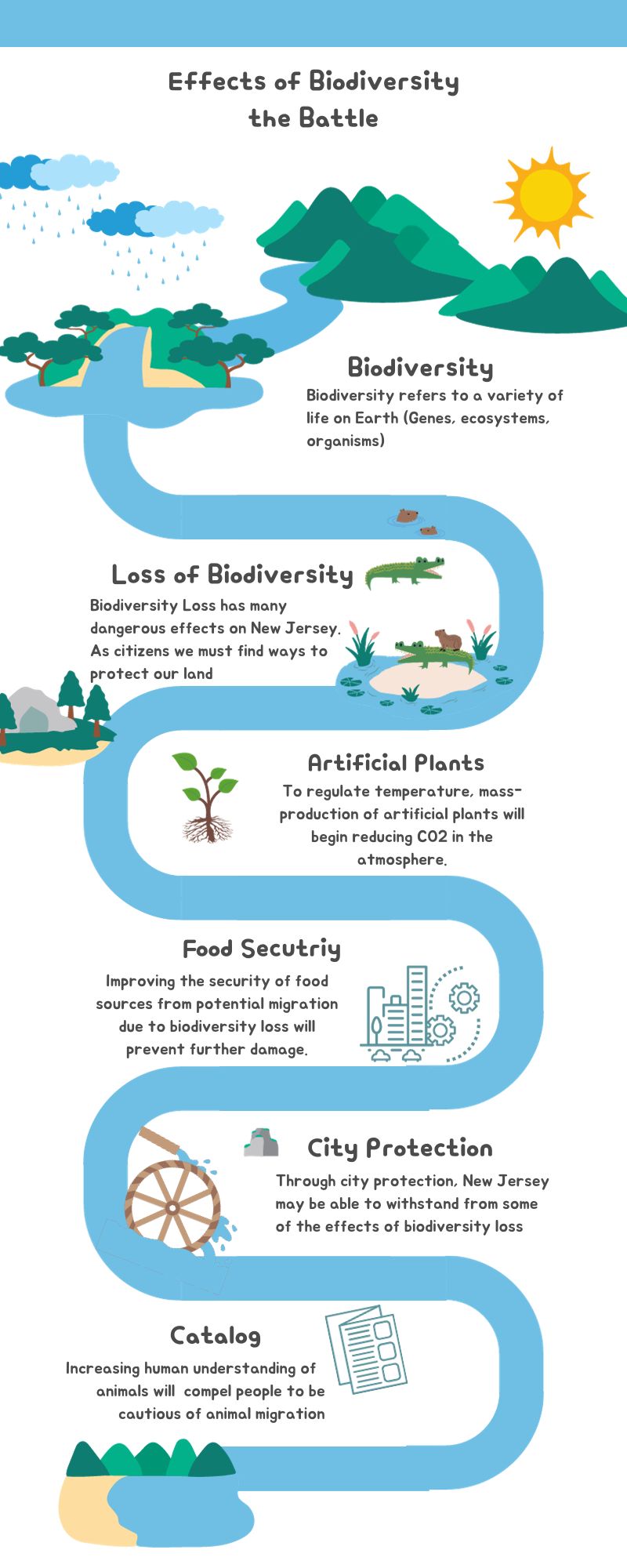In the 21st Century, New Jersians can expect temperatures to rise by 5 to 10 Fahrenheit. With the prediction of increasing temperatures, ecologists speculate biodiversity loss will ensue, causing multiple adverse effects on New Jersey: agricultural loss, potential discoveries from ecosystems lost, increase in animal extinction, and threatened food security. New Jersey can avoid this imminent disaster by regulating temperature and protecting current human societies.
In order to regulate weather, a creation will need to be designed: artificial plants. By creating fabricated plants that are able to function the process of photosynthesis, CO2 in the atmosphere will decline. Nature’s ability to regulate CO2 will be enhanced, thus ensuring warmer temperatures do not harm the land. These plants will be mass-produced and allocated to barren land.
Irregular temperature changes are inevitable. However, New Jersey should focus on the preservation of current human societies to avoid any effects. Improving food security and city protection through infrastructure will prevent the inevitable effects of migration. Additionally, creating a catalog of animals will improve human understanding of animals, hence inflicting caution on migration.
Ultimately, increasing the protection of human societies and managing temperatures will help New Jersey evade some of the effects of biodiversity loss.
Contact us
Thank you for your interest in contacting Future Engineers. We look forward to connecting with you!
General Inquiries
support@futureengineers.orgSponsorship Inquiries
sponsor@futureengineers.org
